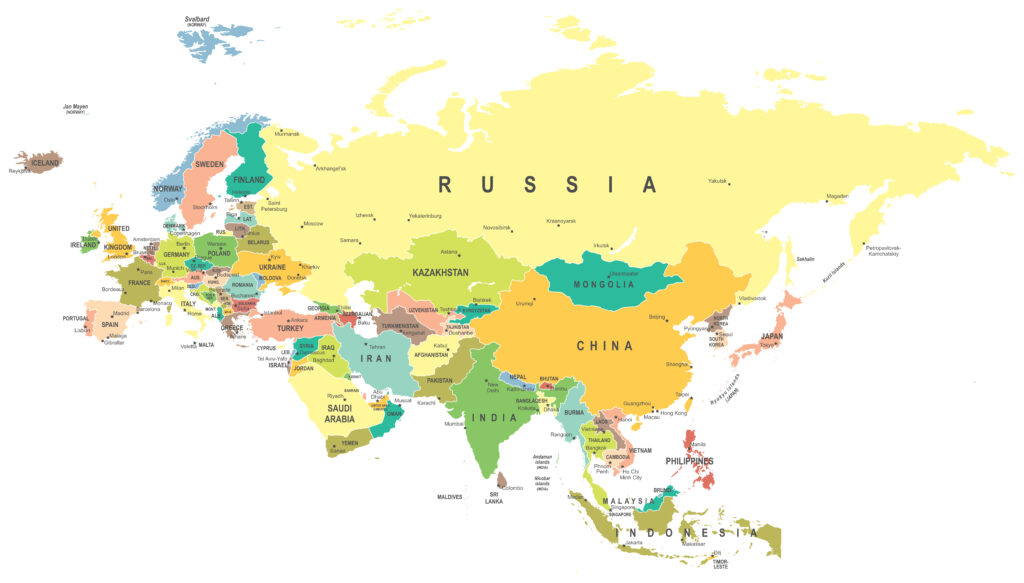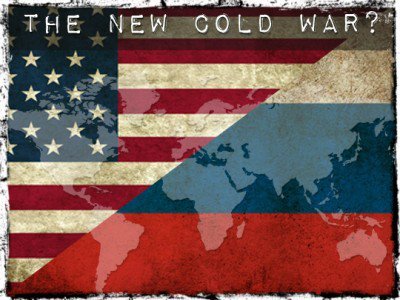Iversen actually gets a couple of details wrong here. For example, the Donbas rebels actually wanted autonomy rather than to be absorbed by Russia. But it’s interesting to see a reasonably sane take about this on a corporate media outlet. – Natylie
All posts by natyliesb
The Critical Hour: Ray McGovern Debates Scott Ritter on Ukraine Crisis (1/21/22)
Gordon Hahn: Putin’s ‘Military-Technical and Other Options if Strategic Stability and Ukraine Talks Fail

By Gordon Hahn, Russian & Eurasian Politics, 1/10/22
….The obvious political options are breaking off all relations with Ukraine, Washington, NATO, particularly anti-Russian NATO member-states such as Poland, Lithuania, Latvia, and Estonia. In addition, Putin might follow his course in South Ossetiya and Abkhazia and recognize the Donetsk Peoples Republic (DNR) and Luhansk People’s Republic (LNR) as independent states, something Moscow refused to do in 2014 at the beginning of the Ukrainian crisis. On the other hand, he might be better off merely threatening such a step, as he should have done with regard to Crimea after the Western-backed insurrection in Kiev. Some of Putin’s military-technical responses would follow from this.
One military-technical option would be to establish a large permanent Western Military District base close to Ukraine’s border with or inside the DNR/LNR or place the base near but only some contingent of troops inside the the Donbass state(s). In conjunction with this, Moscow would likely increase significantly the size of its Black Sea Fleet. One retired Russian officer has recommended doubling the size of the fleet givien rising tensions in the region and the fleet’s responsibilities covering not just the Black and Azov Seas but parts of the Mediterranean, Red Sea, and parts of the Atlantic and Indian Oceans as well. This would also be a response to increased U.S. and NATO naval activity in the Black Sea and to Turkey, which has stepped up military assistance to Kiev, and has a naval fleet much larger than Russia’s Black Sea Fleet. Another military-technical measure would be to send a large military contingent (10-30,000 troops) and drastically increase military assistance to Belarus north of Ukrane and perhaps even increase the forces of the 14th army in Transdnietr, southwest of Ukraine. Moscow might even deploy short- to intermediate range nuclear missiles under Russian army control. Announcement that some target Kiev and other Ukrainian cities, in particular Lvov and western Ukraine. Similar measures to any or all of those above could be taken with regard to Russia’s some 12,000 forces in its Kalaningrad Oblast’ exclave, between Germany and the Baltic states and strengthen the Baltic Sea Fleet. This would have three logical purposes: demonstrate strength and inflict a price in the face of Western intransigence, reinforce the exposed exclave, and buttress the defense of Belarus.
Read full article here.
Quincy Institute: Diplomats & Experts: Negotiate, or Expect ‘Drastic Escalation’ by Russia

By Anatol Lieven, Quincy Institute for Responsible Statecraft, 1/20/22
On Monday January 17, the Quincy Institute convened a small closed door working group of former American and British ambassadors and experts on Russia and Ukraine to discuss possible scenarios in the context of the present crisis between Russia and the West. Senior fellow Anatol Lieven chaired the meeting and summarizes its conclusions here.
Is a Russian invasion of Ukraine now certain? This was the belief of one participant in the discussion, on the basis of the fact that Russia enjoys overwhelming military superiority and that the United States and NATO have simultaneously made clear that they will not fight Russia and that they will not accede to Russia’s key demands.
The rest of the participants were not so pessimistic. All agreed though both on the extreme seriousness of the present crisis, and that we only have a matter of a few weeks at most to prevent a drastic escalation by Russia.
The consensus among participants was that the Russian government has not yet decided on war, and that Russian demands (including most notably a permanent bar on further expansion of NATO) are not final and non-negotiable, but are initial bargaining positions. However, there was general agreement that to have a chance of reaching a compromise with Russia to avert a new war, the United States will have to go much further than its own initial statements.
Participants agreed that for reasons of domestic and international prestige, President Putin simply cannot emerge from this crisis empty-handed, and that his rhetoric and that of other Russian officials, together with Western intransigence, have placed Russia in a position where its only choice may be between humiliation and war. So although Putin and the Russian establishment are fully aware of the economic and political damage that Russia could suffer from a war, as well as the immense political difficulties it would face in occupied areas of Ukraine, the Russian government is indeed seriously considering war.
It was pointed out that inside Russia, (quite contrary to most perceptions in the West), “Putin faces no real threats from the Left, only from the Right”. Hardliners in the Russian establishment were bitterly disappointed with Putin’s refusal to occupy much larger areas of Ukraine in 2014, when Ukrainian military resistance would have been minimal and incidents like the killing of Russian demonstrators in Odessa would have given Russia a perfect excuse. There is a general feeling among the Russian elites that Putin’s strategy of trying to seek compromise through Germany and France has utterly failed. Indeed, Putin himself now seems to share this view.
All participants were of the view that agreement can only be reached by the United States and Russia, ideally negotiating in secret. Involving European members of NATO can only complicate the process to the point where no coherent negotiating strategy will be possible. In addition, Moscow no longer takes the Europeans seriously. As to the Ukrainian government, fear of its own hardliners makes it incapable of compromise. It will therefore have to be faced with a fait accompli.
As to the formulation of U.S. proposals that could be accepted by Russia as the basis for a possible solution, or at least an end to the immediate threat of war and an agreement to go on negotiating, thinking among the participants was primarily along the following lines:
1.) If for domestic political reasons the Biden administration cannot offer a Ukrainian treaty of neutrality or a permanent ban on NATO membership, then it should offer a moratorium on further NATO expansion for a period sufficiently long (10-20 years) to reassure Russia and give Putin the appearance of success. The West would sacrifice nothing by this, since even the most ardent proponents of NATO membership for Ukraine acknowledge that this cannot possibly happen in the near future.
2.) A pledge by NATO to return to the full terms of the Adapted Conventional Armed Forces in Europe (ACFE) agreement of 1999, allowing for the continued deployment of Russian troops in the Abkhaz and Southern Ossete (internationally unrecognized) republics formerly part of Georgia, and the Transdniestria region of Moldova. Russian troops are never going to leave these areas, so Western pressure is pointless. The ACFE however would form a solid basis for mutual restraint on military deployments elsewhere, including new NATO deployments in eastern Europe.
3.) Such an agreement should include proposals for a new European security framework involving Russia, aimed at the solution of the various disputes and frozen conflicts in Europe, including Crimea and Kosovo, and at the avoidance of future conflict. This would also encourage co-operation on areas of joint concern like international terrorism, illegal migration and the trade in drugs.
4.) There was disagreement on whether a pledge to relaunch the Minsk II agreement on autonomy for the Donbas should be part of a U.S. offer. Some participants argued that Minsk II is effectively dead. Others pointed out that even if a new name is given to the process, in the end guaranteed autonomy for the Donbas within Ukraine is the only possible way of resolving that dispute peacefully and without its eventual incorporation into Russia. It was also argued that more broadly, the Biden administration and NATO should commit themselves to the principle of a multi-ethnic Ukrainian identity with a recognized and guaranteed place for the Russian minority and Russian language.
If the United States refuses to move significantly from its existing positions, then the general sense of the meetingas that war is very likely, preceded by an escalating series of moves like the cyber-attack on Ukraine intended to signal Russian will to fight and capacity to win.
In the event of war, some participants suggested that Russia would only occupy the rest of the Donbas, and inflict a stinging local defeat on Ukraine that would underline NATO’s inability to help. By limiting military action in this way, Moscow would hope to avoid really severe Western sanctions —while threatening that if sanctions were imposed and the West armed Ukraine, Russia would go much further.
If it does go much further, one participant believed that this could even involve Russian strikes on the Baltic States, Poland, and Romania, intended to pre-empt the movement of U.S. forces into these countries and to emphasize the complete impotence of NATO. Most however felt that Moscow would do everything possible to avoid a direct clash with NATO forces, and would not try to occupy Kiev or the ethnic Ukrainian heartlands, but would stick to the Russian-speaking areas of the east and south of the country that were (at least till 2014) traditionally pro-Russian and where Russia could attract a measure of local support.
At the very least, Russia might aim to occupy the Black Sea coast of Ukraine as far as Crimea, so as to end Ukraine’s blockade of water supplies that has done considerable damage to Crimea. It is also possible that Russia would seek to take Odessa and the entire Black Sea coast so as to establish a land link to the Russian-protected territory of Transnistria (a separatist part of Moldova), fearing that otherwise Ukraine could blockade Transnistria and starve the Russian force there into surrender.
However far Russia marched, the consensus of the meeting was that Moscow would not subsequently annex more Ukrainian territory. Rather, having made its point about Russian determination and U.S. and NATO impotence, the Russian government would offer to withdraw its forces in return for Western and Ukrainian agreement to an expanded version of Russia’s existing demands. This would include: a bar on NATO membership for Ukraine (or possibly a treaty of neutrality), a mutual withdrawal of NATO forces from Russia’s borders, and a federal system for Ukraine involving autonomous status for all the main Russian-speaking regions. Moscow would hope that the West would then accept the re-establishment of Ukrainian unity and territorial integrity on this basis, that would also guarantee Russian vital interests in Ukraine.
While members of this group differed about the extent of the damage and losses Russia would suffer in the event of war, none of them put forward any scenario involving Western or Ukrainian success.
QI research analyst Artin Dersimonian contributed to this report.
Vladimir Kozin Discusses Recent Talks Between US/NATO & Russia
Dr. Vladimir Kozin, PhD, is a member of the Russian Academy of Military Sciences, and Special Advisor to the Russian Presidential Administration.